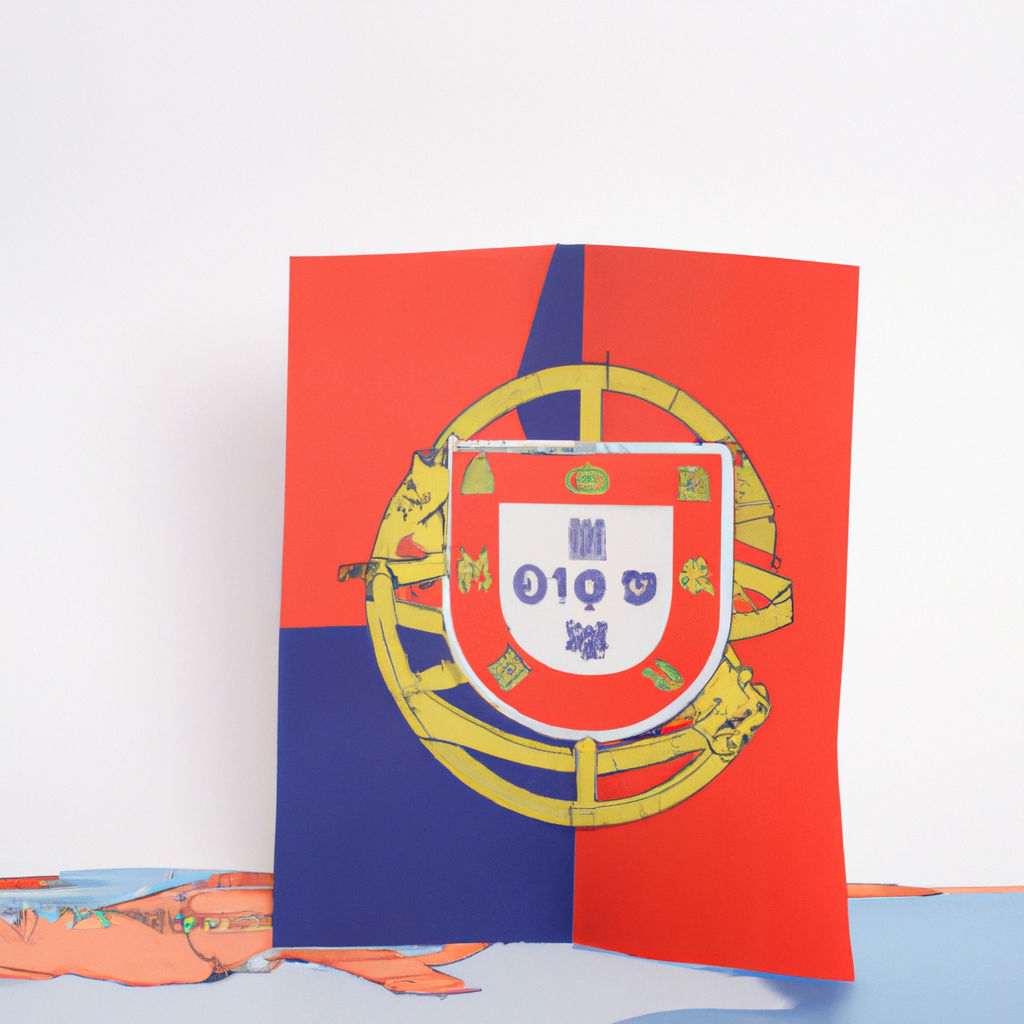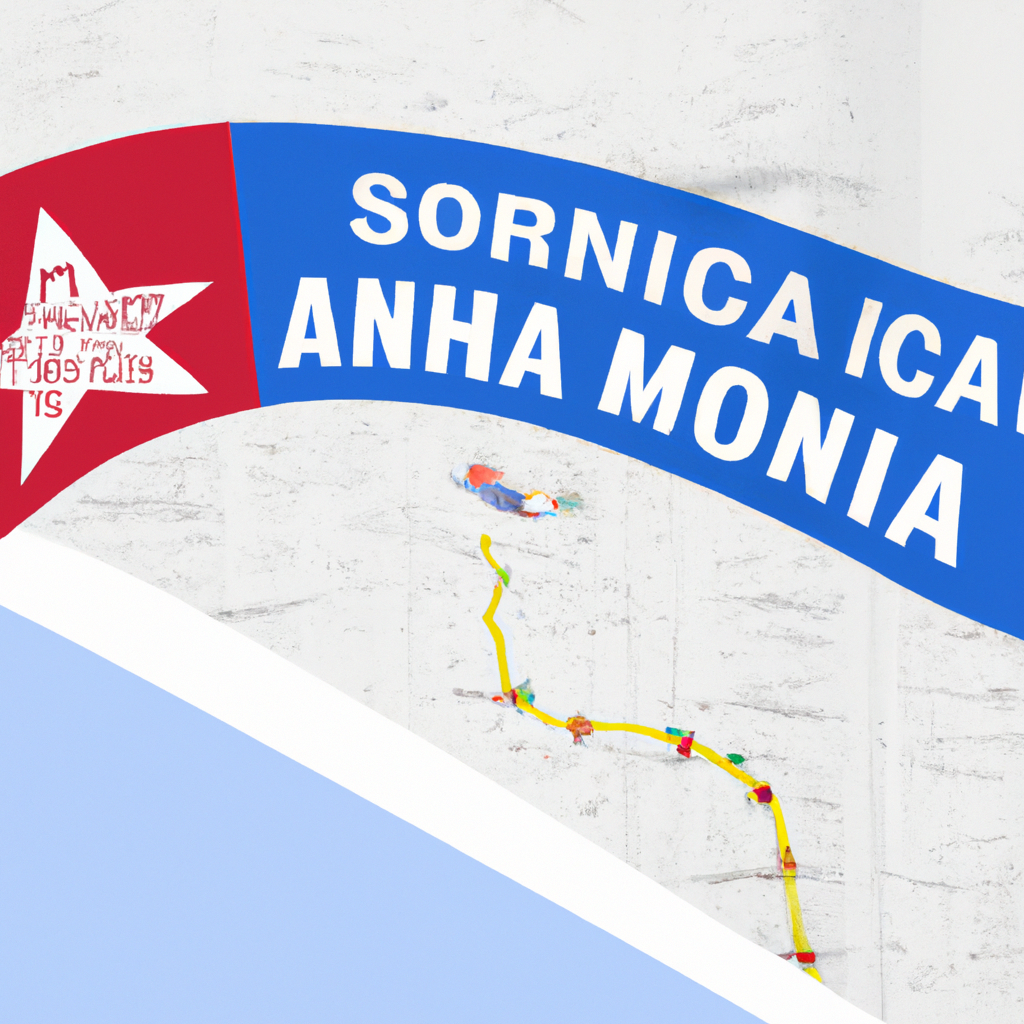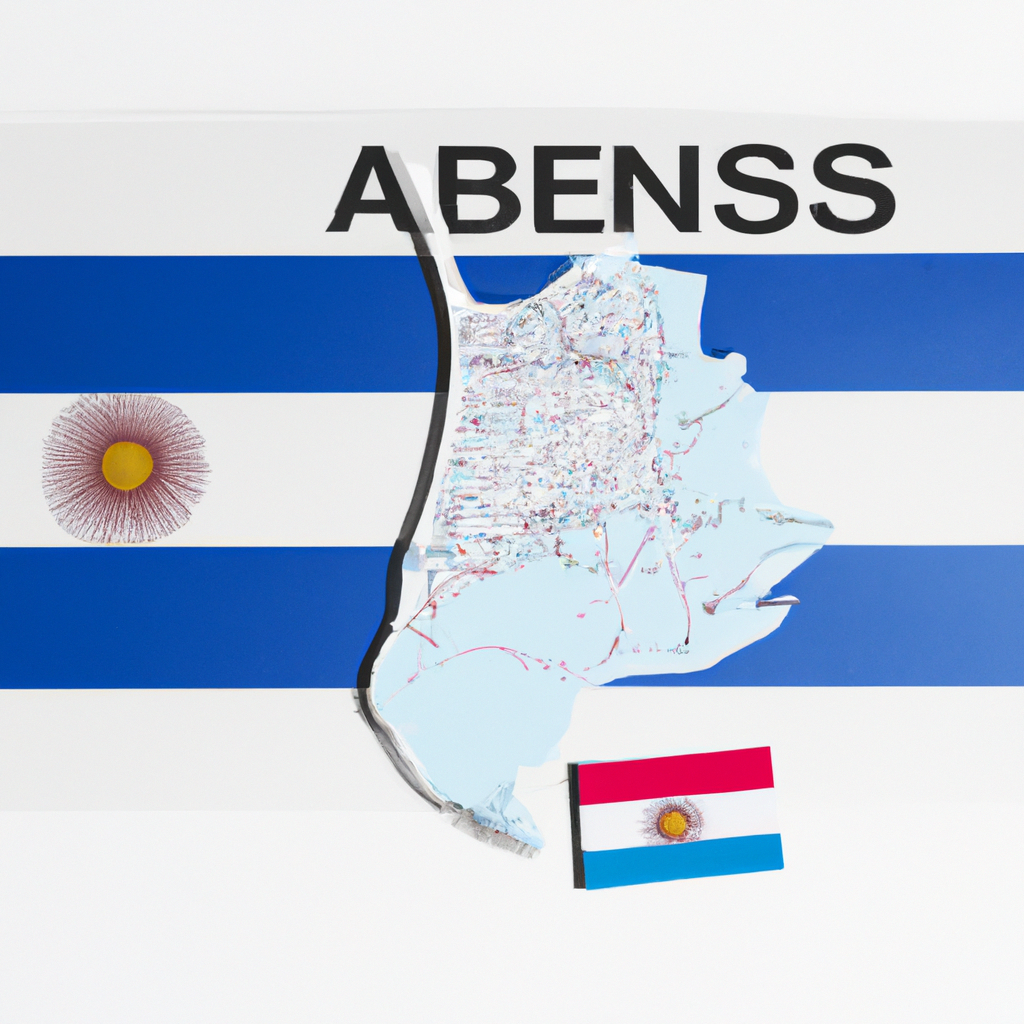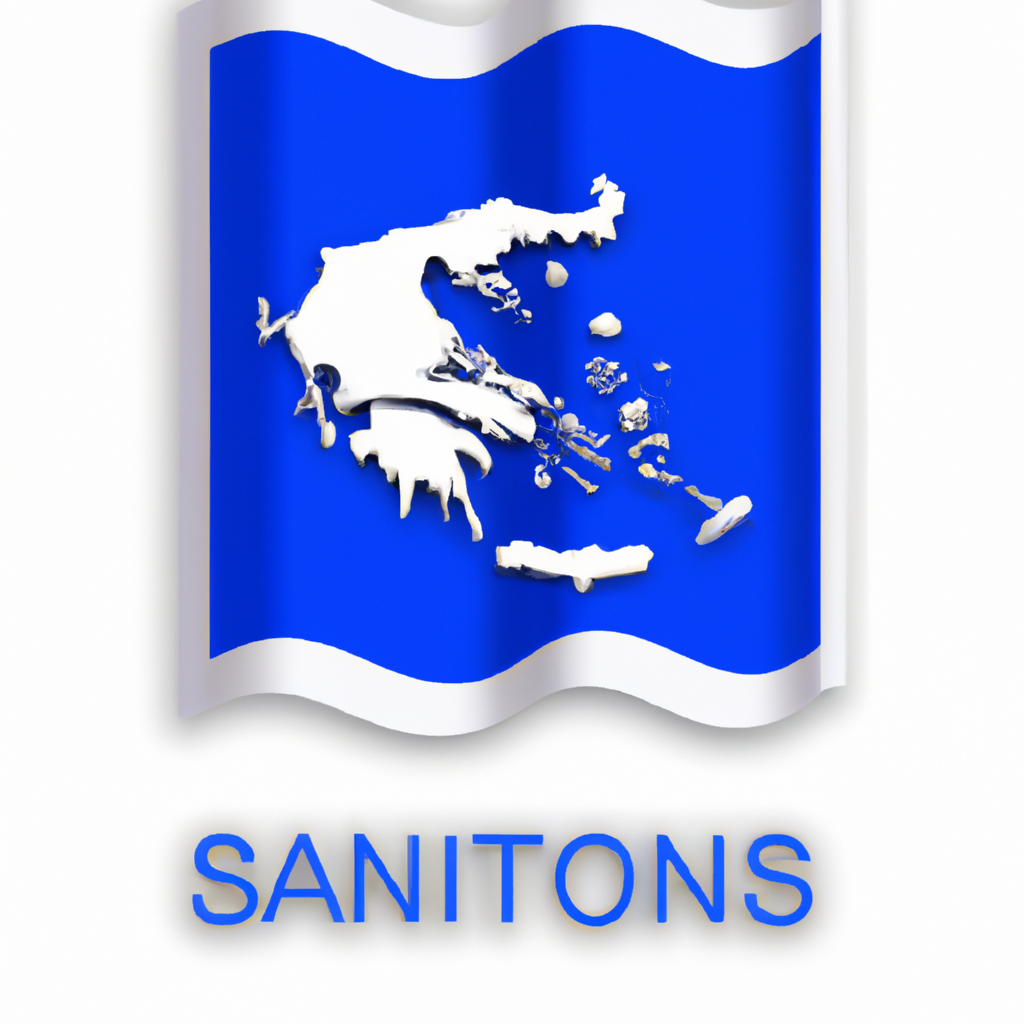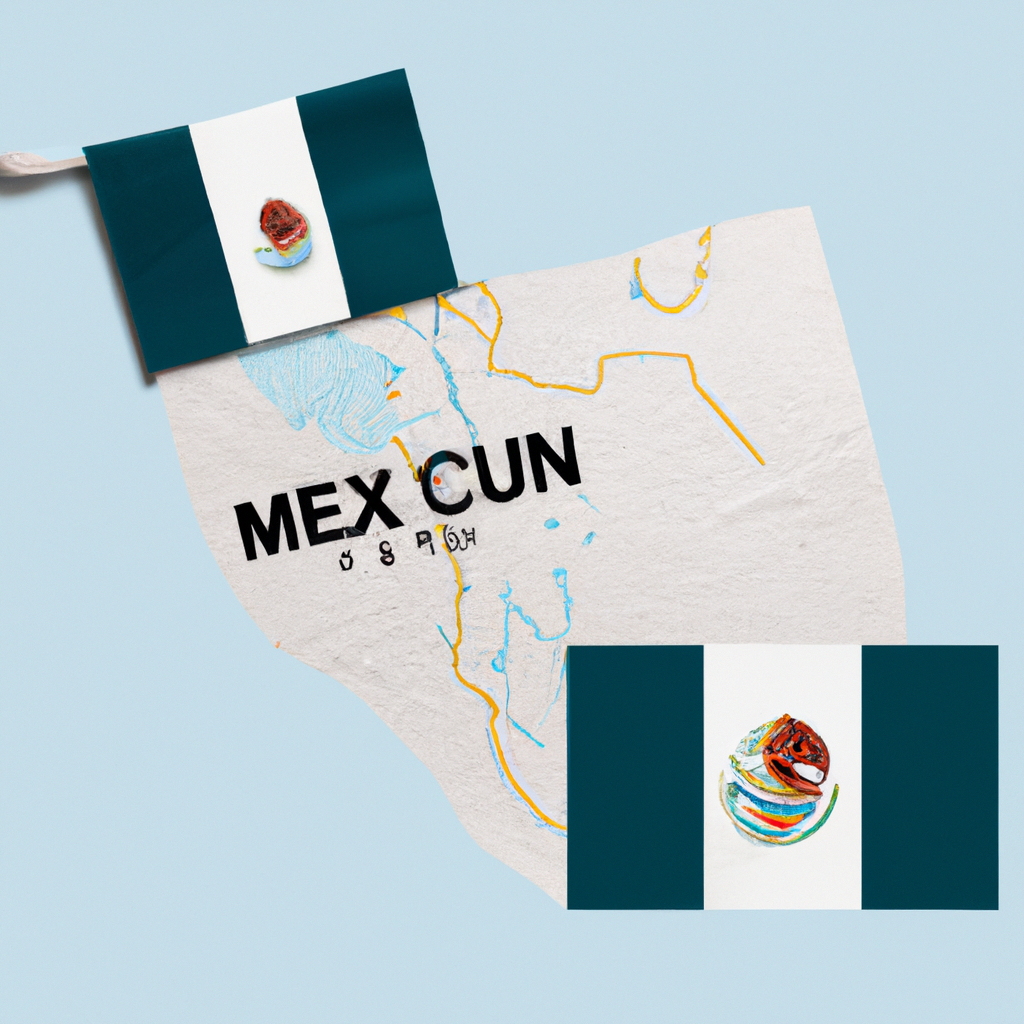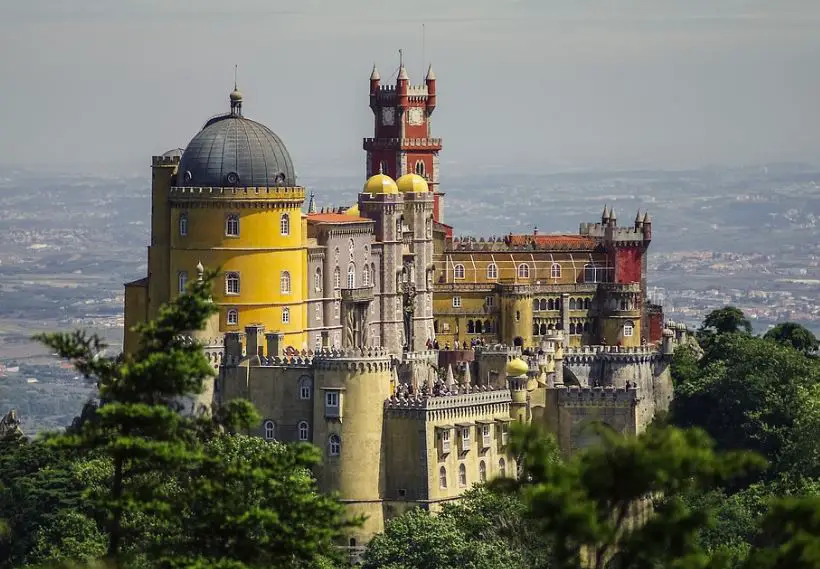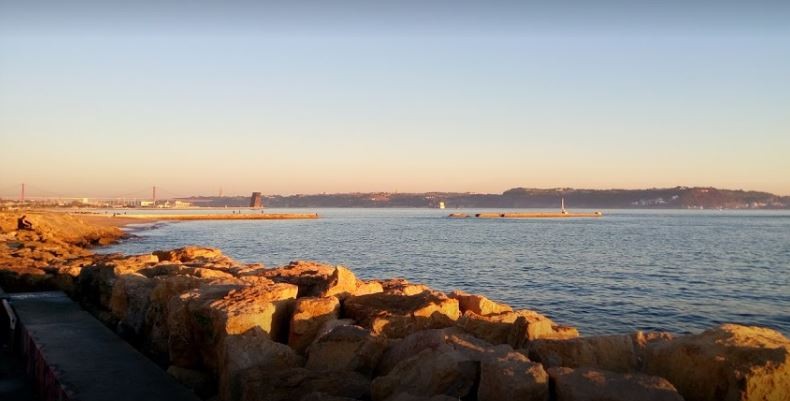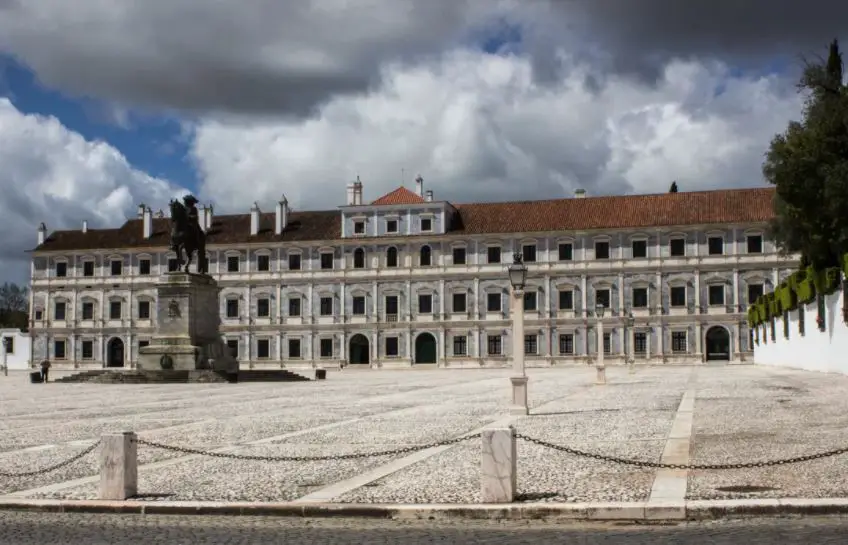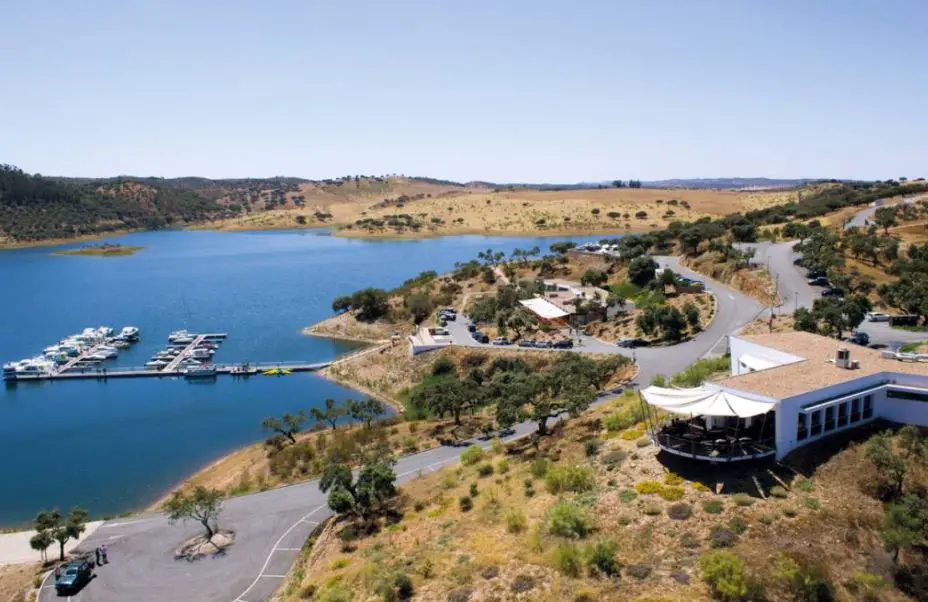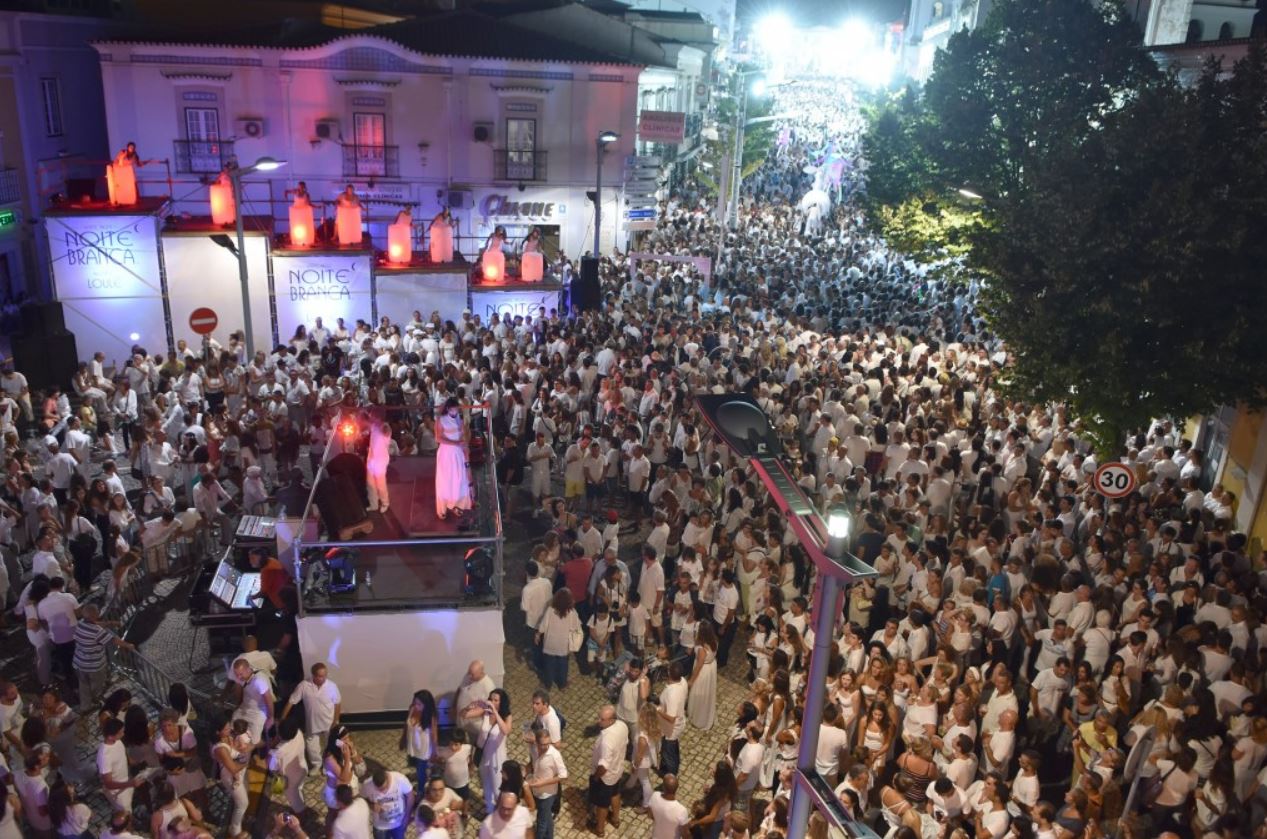Porto, Portugal: Interesting Facts,History, Things to do,Why to Visit
Post ByAdequate Travel
Porto, Portugal is a beautiful city on the Atlantic coast that has been around since the 4th century A.D. Rich with cultural heritage and amazing architecture, there is much to be explored and enjoyed in Porto. From the Clerigos Tower to the buzzing nightlife, this city is sure to capture your heart. Interesting facts, history, things to do, and why to visit will be explored in this blog. Not only is Porto a great place for tourists, but it is also an excellent place for locals to enjoy a unique city experience. From the bustling street restaurants to the never-ending music atmosphere, there is something for everyone. Get ready to experience the amazing history, culture, and fun of Porto, Portugal.
Portugal is a country located on the western edge of the Iberian Peninsula in Europe. It is known for its rich history, picturesque beaches, stunning landscapes, and vibrant culture.Portugal has a population of around 10 million people and its capital city is Lisbon. The official language is Portuguese, and the currency is the Euro.The country has a diversified economy, with industries such as tourism, agriculture, manufacturing, and services playing a significant role. Portugal is also known for its production of cork, wine, and olive oil.The history of Portugal is marked by its past as a prominent maritime power, with explorers like Vasco da Gama and Ferdinand Magellan making significant voyages during the Age of Discovery. Portugal also had a colonial empire, with territories in Africa, Asia, and South America.Today, Portugal is a member of the European Union and the United Nations, and it enjoys a stable political system and a high standard of living. It is a popular tourist destination, attracting visitors with its beautiful coastline, historical sites such as castles and palaces, and vibrant cities like Porto and Faro.Despite its successes, Portugal has faced challenges in recent years, including a financial crisis in 2011. However, the country has made significant progress in recovering from the crisis and implementing economic reforms.Overall, Portugal is a country with a rich cultural heritage, stunning natural beauty, and a thriving tourism industry. It continues to be a popular destination for travelers from around the world.portugal tourist attractions offer a diverse range of experiences for every traveler.
Interesting facts
History of Portugal:
- Portugal, located in southwestern Europe on the Iberian Peninsula, has a rich and ancient history. It was established as a kingdom in 1139, making it one of the oldest countries in Europe. - One of the most significant events in Portuguese history was the Age of Discoveries in the 15th and 16th centuries. Portugal became a dominant maritime and colonial power, exploring and influencing territories across the globe. Notable explorers like Vasco da Gama, Ferdinand Magellan, and Bartolomeu Dias were Portuguese.- The country had a long-lasting monarchy until the establishment of the Portuguese First Republic in 1910. It was followed by periods of dictatorship and political unrest, including the Estado Novo regime of António de Oliveira Salazar from 1933 to 1974.- Portugal was a founding member of NATO and joined the European Union in 1986. Since then, it has experienced significant economic growth and development.Cultural Heritage:
- Portugal has a rich cultural heritage shaped by various influences, including Roman, Moorish, and Christian civilizations. The country's architecture, art, music, and cuisine reflect this diverse heritage.- Portuguese architecture is known for its Manueline style, a flamboyant and intricate blend of late Gothic and Renaissance elements. The most famous example is the Jerónimos Monastery in Lisbon, a UNESCO World Heritage site.- Fado is a traditional Portuguese music genre that often expresses a melancholic sentiment, known as "saudade." It is characterized by soulful singing accompanied by Portuguese guitars. Amália Rodrigues is considered the greatest fado singer of all time.- Portuguese cuisine is renowned for its seafood dishes, such as bacalhau (salted cod), grilled sardines, and caldeirada (fish stew). Pastéis de nata, a popular custard tart, is a must-try dessert.- The Festival of Saint Anthony, celebrated annually in Lisbon, is one of the most prominent cultural events in Portugal. It includes colorful street processions, traditional dances, and the famous sardine festival.Natural Wonders:
- Portugal is blessed with diverse landscapes and natural wonders.- The Douro Valley in northern Portugal is famous for its picturesque vineyards and is a UNESCO World Heritage site. It is one of the oldest demarcated wine regions in the world.- The Azores, a group of nine volcanic islands in the Atlantic Ocean, offer unique and stunning landscapes. The Sete Cidades twin lakes on São Miguel Island and the Fajãs (coastal plains) of São Jorge Island are notable attractions.- The Algarve region is renowned for its beautiful sandy beaches, dramatic cliffs, and crystal-clear waters. It is a popular destination for sun-seekers and water sports enthusiasts.- The Peneda-Gerês National Park, located in northern Portugal, is the country's only national park. It is characterized by stunning landscapes, including mountains, valleys, and rivers, making it a paradise for hikers and nature lovers.From museums to parks,portugal tourist attractions offer something for everyone, making it a versatile destination for all type of tourists.History of Portugal
The history of Portugal spans several centuries, with influences from various civilizations and cultures. Here are some key points and events that shaped the history of Portugal:
1. Roman Period (2nd century BC - 5th century AD)
During this period, the Iberian Peninsula, including present-day Portugal, was under Roman occupation. The Romans established numerous towns and cities, such as Olisipo (Lisbon) and Bracara Augusta (Braga), and introduced their language and cultural practices.
2. Moorish Rule (8th century - 12th century)
In the early 8th century, the Moors, a Muslim North African group, invaded the Iberian Peninsula. They conquered most of Portugal and established the Caliphate of Cordoba. However, in the 11th century, several Christian kingdoms in the north of Portugal, including the County of Portugal, started to resist and gradually reconquer territories from the Moors.
3. Foundation of Portugal (12th century)
In 1139, Afonso Henriques, the first King of Portugal, declared the independence of the County of Portugal from the Kingdom of León. This marked the beginning of the Kingdom of Portugal as a separate entity. Throughout the 12th and 13th centuries, Portugal continued to expand its territory through the Reconquista, a period of Christian reconquest.
4. Age of Discoveries (15th century - 16th century)
Portugal's golden age began in the 15th century with the start of maritime exploration and the Age of Discoveries. Portuguese explorers like Vasco da Gama, Ferdinand Magellan, and Henry the Navigator played a significant role in exploring new trade routes, reaching Africa, India, Brazil, and eventually establishing a vast global empire.
5. Union with Spain (16th century - 17th century)
In 1580, the King of Spain, Philip II, invaded and annexed Portugal, integrating it into the Spanish Empire. This union lasted for about 60 years and had a significant impact on Portugal's culture and economy.
6. Restoration of Independence (17th century)
In 1640, a revolution led by Portuguese nobility and supported by the general population resulted in the restoration of Portuguese independence. The House of Braganza ascended to the throne, and Portugal gained sovereignty once again.
7. Colonial Era and Decline (17th century - 20th century)
During the colonial era, Portugal established numerous colonies and trading posts around the world, including Brazil, Angola, Mozambique, and Macau. However, over time, these colonies gradually gained independence, leading to the decline of the Portuguese Empire. In 1974, a peaceful revolution known as the Carnation Revolution ended the longest dictatorship in Europe and marked the beginning of democracy in Portugal.
8. Modern Portugal (20th century - present)
Since the Carnation Revolution, Portugal has undergone significant social, political, and economic changes. It joined the European Union in 1986 and has since experienced growth and development. Portugal is now known for its cultural heritage, tourism, and commitment to renewable energy sources.
Overall, the history of Portugal encompasses various periods of conquest, exploration, colonization, and struggle for independence, shaping the country's identity and contributing to its rich cultural heritage.Exploring the rich heritage of historical sites in portugal is a journey through time and culture.Famous Things in Portugal
Portugal is a beautiful country in Southern Europe with a rich cultural heritage and stunning natural landscapes. Here are some famous things that Portugal is known for:
1. Fado Music
One of the most iconic elements of Portuguese culture is Fado music. Fado is a traditional genre of music characterized by its soulful and melancholic tunes. This expressive music often reflects on themes of longing, nostalgia, and saudade (a Portuguese word for a deep emotional state of longing or nostalgia).
2. Port Wine
Portugal is renowned for its production of port wine. Port wine is a fortified wine produced in the Douro Valley region of northern Portugal. It is known for its rich flavors, high alcohol content, and sweet taste. The lush vineyards and centuries-old wine cellars make for a picturesque wine-tasting experience.
3. Azulejos
Azulejos are traditional Portuguese ceramic tiles that can be found all over the country, from churches and palaces to everyday homes. These decorative tiles come in various colors and patterns, often depicting historical or cultural scenes. They are a unique and beautiful feature of Portuguese architecture.
4. Pasteis de Nata
Pasteis de Nata, also known as Portuguese custard tarts, are delightful pastries that originated in Portugal. These small, crispy pastries have a creamy custard filling, sprinkled with cinnamon and powdered sugar. They are a beloved Portuguese treat and can be found in bakeries across the country.
5. Vasco da Gama
Vasco da Gama was a famous Portuguese explorer who played a significant role in opening up trade routes to India. He was the first European to reach India by sea, establishing Portugal as a major maritime power during the Age of Discovery. His voyages and achievements are celebrated in Portuguese history.
6. Sintra
Sintra is a picturesque town located near Lisbon and is known for its enchanting palaces, luxurious villas, and lush gardens. It is a UNESCO World Heritage Site and attracts tourists with its fairytale-like atmosphere. The Pena Palace, Quinta da Regaleira, and the Moorish Castle are must-visit landmarks in Sintra.
7. Lisbon Trams
Lisbon, the capital city of Portugal, is famous for its charming trams that crisscross the hilly streets. These vintage trams are a symbol of the city and provide a unique way to explore Lisbon's historic neighborhoods. The iconic Tram 28 route takes you through the narrow alleys of the old town and past major attractions.
8. Cristiano Ronaldo
Cristiano Ronaldo, regarded as one of the greatest football players of all time, hails from Portugal. Born in Madeira, Ronaldo has achieved numerous accolades throughout his career, including multiple FIFA Ballon d'Or awards. He is a national hero and has brought great pride to Portugal with his remarkable skills and achievements on the football field.
Discover some unique facts about portugal that will leave you amaze and intrigue.Culture of Portugal
Portugal has a rich and diverse culture that is shaped by its history and geography. Here are some key aspects of Portuguese culture:
1. Language
The official language of Portugal is Portuguese, and it is spoken by the majority of the population. Portuguese is also the sixth most spoken language in the world, with dialects varying across different regions of the country.
2. Gastronomy
Portuguese cuisine is known for its fresh ingredients and bold flavors. Some popular dishes include bacalhau (salted codfish), caldo verde (kale soup), and pastéis de nata (custard tarts). Portugal is also famous for its wine production, particularly the Port wine from the Douro Valley.
3. Fado Music
Fado is a traditional Portuguese music genre that is characterized by melancholic tunes and soulful lyrics. It often depicts themes of longing, nostalgia, and saudade (a Portuguese word that represents a deep emotional state of melancholic longing). Fado singers, known as fadistas, often perform in small taverns or cafes.
4. Festivals and Celebrations
Portugal has a vibrant festival culture, with various celebrations taking place throughout the year. Some notable festivals include the Carnival in Torres Vedras, the Festa dos Tabuleiros in Tomar, and the Festas de Lisboa in Lisbon. These festivals showcase traditional music, dances, costumes, and street parades.
5. Tiles and Azulejos
Portugal is famous for its traditional ceramic tiles known as azulejos. These decorative tiles can be found on buildings, churches, and train stations, depicting historical and cultural scenes. They are considered an important part of the country's architectural heritage.
6. Soccer
Football (soccer) is an integral part of Portuguese culture. The national team, commonly known as "A Seleção," has achieved international success, winning the UEFA European Championship in 2016. Portuguese people are passionate about the sport and often gather in cafes or bars to watch matches.
Immerse yourself in the local culture by exploring portugal's top-rated tourist attractions.Cuisine of Portugal
Portuguese cuisine is known for its variety and flavors that come from fresh ingredients, centuries-old traditions, and influences from Mediterranean, African, and Asian cuisines. It is a rich and diverse culinary culture that showcases the country's history, geography, and cultural heritage. Here are some key aspects of Portuguese cuisine:
1. Seafood:
Being a coastal country, Portugal has a strong focus on seafood. Popular dishes include bacalhau (salted codfish), sardines, octopus, and various types of shellfish. Grilled sardines are a typical summer delicacy that can be found in almost every seaside town.
2. Meat and Grilled Dishes:
Portugal is also known for its delicious meat dishes, particularly pork and lamb. One popular dish is "cozido à portuguesa," a hearty meat stew cooked with vegetables. Grilled meat, such as "churrasco" (barbecue), is also a common choice, often served with a side of rice or fries.
3. Bread and Pastries:
Bread is an important staple in Portuguese cuisine, and every region has its own specialty. From the crusty "broa" to the sweet "bolo do caco," bread accompanies many meals. Portugal is also famous for its pastries, such as the creamy "pastel de nata" (custard tart) and the "queijada" (cheese pastry).
4. Rice and Fish Dishes:
Rice is a popular ingredient in Portuguese cuisine and is often used in various fish dishes. The classic "Arroz de Marisco" is a flavorful rice dish cooked with a variety of seafood, while "Arroz de Pato" is a delicious combination of rice and tender duck meat.
5. Soups and Stews:
Portugal has a rich tradition of soups and stews. One of the most famous is "caldo verde," a hearty soup made with kale, potatoes, and often accompanied by slices of chorizo. Feijoada, a hearty bean stew with various types of meat, is another popular traditional dish.
6. Desserts and Sweets:
No Portuguese meal is complete without a sweet ending. "Arroz Doce" (rice pudding) and "Toucinho do Céu" (almond-based dessert) are just a few examples of the vast array of traditional sweets. The use of almonds, eggs, and local fruits is prevalent in many Portuguese desserts.
7. Wines and Spirits:
Portugal is renowned for its quality wines, including the famous Port wine from the Douro Valley. Vinho Verde, Madeira, and Bairrada are other popular wine regions. Additionally, Portuguese spirits like Port, Ginja, and "bagaceira" (grape brandy) are also well-regarded.
In conclusion, Portuguese cuisine is a delicious amalgamation of flavors from land and sea, with influences from various cultures. From fresh seafood to hearty stews, traditional pastries to exquisite wines, Portugal offers a delightful culinary experience for food enthusiasts.Exploring the city's diverse neighborhoods is one of the best ways to discover the best portugal attractions, each with its own character and charm.1. Visit Lisbon
One of the top things to do in Portugal is to explore its vibrant capital city, Lisbon. With its charming old neighborhoods, historic sites, and delicious cuisine, Lisbon offers a mix of tradition and modernity. Some must-see attractions include the Belem Tower, Jeronimos Monastery, and the Alfama district.
2. Relax on the Algarve Beaches
The Algarve region in southern Portugal is known for its stunning coastline and beautiful beaches. Whether you prefer secluded coves or vibrant beach resorts, there is something for everyone. Popular Algarve beaches include Praia da Rocha, Praia da Marinha, and Praia de Benagil.
3. Explore Porto's Wine Cellars
Porto, Portugal's second-largest city, is famous for its production of port wine. A visit to the city is incomplete without exploring its wine cellars, where you can learn about the history and production of this unique drink. Many cellars offer guided tours and tastings, allowing you to savor the flavors of this renowned wine.
4. Discover Sintra's Fairy Tale Castles
Sintra, located just outside of Lisbon, is a picturesque town known for its fairytale-like castles and palaces. The most famous attraction is the Pena Palace, a colorful and whimsical palace perched on a hilltop. Other notable sites include the Moorish Castle and the National Palace of Sintra.
5. Take a Boat Trip along the Douro River
The Douro River is not only a beautiful natural feature of Portugal but also an iconic symbol of the country's wine production. Taking a boat trip along the Douro River allows you to admire the stunning landscapes of the Douro Valley's vineyards and enjoy a leisurely cruise through the heart of wine country.
6. Visit the Azores Islands
The Azores Islands, a remote archipelago in the Atlantic Ocean, offer a unique and untouched natural beauty. With volcanic landscapes, hot springs, and stunning coastal views, the islands are a paradise for nature lovers and outdoor enthusiasts. Activities such as hiking, whale watching, and swimming in natural pools are popular among visitors.
7. Explore the Historic City of Évora
Évora, a UNESCO World Heritage Site, is a well-preserved medieval city located in the Alentejo region of Portugal. The city is known for its Roman Temple, Gothic cathedral, and narrow streets lined with whitewashed houses. Don't miss the Chapel of Bones, a macabre chapel decorated with human bones.
8. Taste the Pastéis de Belém
A visit to Portugal is incomplete without trying the famous pastéis de Belém. These delicious custard tarts originated in the Belém district of Lisbon and have become a national treasure. The original recipe is closely guarded by the Pastéis de Belém bakery, where you can enjoy this tasty treat while visiting the iconic Jeronimos Monastery.
9. Enjoy the Nightlife in Lagos
Lagos, a vibrant town in the Algarve, offers a lively nightlife scene. With numerous bars, clubs, and live music venues, Lagos attracts party-goers from all over the world. Enjoy a evening of bar hopping, dance to the beats of international DJs, or simply relax with a cocktail on one of the seaside terraces.
10. Marvel at the Capela do Senhor da Pedra
The Capela do Senhor da Pedra, located in Miramar, near Porto, is a unique and mysterious chapel built on a rocky outcrop overlooking the Atlantic Ocean. Its picturesque setting and unusual architectural design make it a captivating sight. The chapel is especially popular among photographers and those seeking a spiritual experience.
When planning your trip to portugal, be sure to include the best things to do in portugal, which encompass a wide range of cultural experiences.Climate of Portugal
Portugal has a Mediterranean climate, characterized by mild, rainy winters and hot, dry summers. However, there are some variations in climate across different regions of the country.
1. Temperature:
The temperature in Portugal can vary greatly from region to region. In the northern part of the country, especially in the mountains, temperatures can drop significantly during the winter months, with snowfall being relatively common. In contrast, the southern region, including the Algarve, experiences much milder winters and hot summers, with temperatures often reaching over 30 degrees Celsius (86 degrees Fahrenheit).
2. Rainfall:
Portugal receives most of its rainfall during the winter months, particularly from November to March. The northern and central regions tend to be wetter, with higher average annual rainfall, while the southern coastal areas experience less rainfall. The Algarve, for example, is known for its dry summers and short, intense rain showers during the rest of the year.
3. Wind:
Wind patterns in Portugal are influenced by its coastal location and the Azores High. The western coast is prone to strong winds, particularly in the winter months, creating ideal conditions for surfing and other water sports. The eastern coast, however, is generally calmer and more sheltered.
4. Atlantic Influence:
Portugal's proximity to the Atlantic Ocean has a significant impact on its climate. The ocean currents, particularly the Gulf Stream, help moderate temperatures and make the coastal areas slightly cooler in summer and warmer in winter than the inland regions.
5. Regional Variations:
Within Portugal, there are distinct climate variations. The Azores archipelago, located in the Atlantic Ocean, has a mild maritime climate with cool summers and mild winters. Madeira, another Portuguese island, enjoys a subtropical climate with warm summers and mild winters. The mainland regions offer diverse climates, ranging from the cooler and wetter north to the hotter and drier south.
Uncover the best portugal attractions that will leave you awe-inspired and wanting more.Popular Activities in Portugal
Portugal offers a diverse range of activities for tourists to enjoy. From exploring historical sites to indulging in delicious cuisine, here are some popular activities in Portugal:
1. Visit Historic Sites and Landmarks
Portugal is rich in history and boasts several remarkable historic sites and landmarks. One must-visit location is the Belém Tower in Lisbon, a UNESCO World Heritage Site. Other notable sites include the Pena Palace in Sintra and the University of Coimbra.
2. Enjoy Beaches and Watersports
Portugal is renowned for its stunning coastline and beautiful beaches. The Algarve region is particularly popular among tourists for its golden beaches and crystal-clear waters. Many beaches in Portugal offer the opportunity to partake in watersports such as surfing, kayaking, and diving.
3. Explore National Parks and Natural Beauty
The country's diverse landscapes provide ample opportunities for nature lovers to explore. The Peneda-Gerês National Park, situated in the north, boasts breathtaking mountains, cascading waterfalls, and wildlife. The Douro Valley, famous for its vineyards, also offers stunning views of the countryside.
4. Engage in Wine Tasting
Portugal is renowned for its wine production, making it a must-visit destination for wine enthusiasts. The Douro Valley and the Alentejo region are famous for their vineyards and offer wine tours and tastings. Port wine, a fortified wine produced in the Douro Valley, is a particular specialty of the region.
5. Enjoy Local Cuisine and Fado Music
Portuguese cuisine is diverse and delicious, with popular dishes including bacalhau (salted codfish), pastel de nata (custard tarts), and francesinha (a hearty sandwich). While enjoying the local cuisine, tourists can also experience Fado music, a traditional Portuguese music genre known for its soulful melodies and heartfelt lyrics.
By providing headings using thetag, the structure of the content is organized, making it easier to locate and understand the different popular activities in Portugal. The use of
tags allows for clear and concise explanations of each activity, and the bullet points help to highlight the examples within each category.Plan your trip with a list of the best things to do in portugal, catering to all interests.
Night life in Portugal
Portugal offers a vibrant and diverse nightlife scene, with options to suit every taste and preference. Whether you prefer clubs, live music, or cozy bars, you will find plenty of choices to enjoy your evenings in Portugal.
1. Lisbon
Lisbon, the capital city of Portugal, is known for its lively nightlife. The Bairro Alto neighborhood is particularly famous for its narrow streets filled with bars and clubs. Rua da Rosa and Rua do Diário de Notícias are two streets that are highly popular among locals and tourists alike. You can explore different venues offering a variety of music genres, from jazz to electronic.
2. Porto
Porto, another major city in Portugal, also has a vibrant nightlife. The Galerias de Paris area is where you can find a range of nightlife options. This area is known for its trendy bars and clubs, offering everything from local Portuguese music to international DJs.
3. Algarve
The southern region of Algarve is a popular tourist destination known for its beautiful beaches and lively nightlife. Cities like Albufeira and Lagos offer a buzzing nightlife with beach clubs and waterfront bars. You can enjoy live music, dance to the latest tunes, or relax with a cocktail while enjoying the sea view.
4. Coimbra
If you're looking for a vibrant student nightlife, Coimbra is a great choice. As it is home to one of Portugal's oldest and most prestigious universities, you'll find numerous bars and clubs catering to the student population. The República neighborhood is especially popular, known for its bohemian atmosphere and lively parties.
5. Fado Houses
Fado is a traditional Portuguese music genre known for its melancholic tunes and poetic lyrics. Throughout Portugal, you can find Fado Houses where you can enjoy live performances of this unique music style. These venues often offer a cozy and intimate atmosphere, allowing you to immerse yourself in Portuguese culture and music.
Explore the popular places in portugal, and immerse yourself in its vibrant culture.Why to Visit Portugal
Portugal is a beautiful country located in southwestern Europe on the Iberian Peninsula. It is known for its rich history, stunning architecture, vibrant culture, delicious cuisine, and breathtaking landscapes. Here are some compelling reasons why you should consider visiting Portugal:
1. Rich History and Architecture
Portugal has a fascinating history that dates back thousands of years. From Roman ruins to medieval castles and charming towns, the country is a treasure trove of historical landmarks. The captivating architecture, including Manueline and Pombaline styles, can be found throughout Portugal. A visit to iconic sites like Belém Tower, Jerónimos Monastery, and Pena Palace will transport you back in time.
2. Vibrant Culture
The Portuguese people are warm, friendly, and known for their hospitality. They take pride in their vibrant culture, which is showcased through traditional music, folk dances like Fado, and unique festivals. Experience the lively atmosphere of Lisbon's Alfama district, explore traditional markets, and indulge in local traditions to get a taste of Portuguese culture.
3. Stunning Beaches
Portugal is home to some of Europe's most stunning beaches. From the picturesque Algarve region in the south to the wild coastline of the Azores and Madeira islands, there is a beach for everyone. Kick back and relax on golden sands, engage in thrilling water sports, or take a boat trip along the dramatic sea cliffs.
4. Delicious Cuisine
Portuguese cuisine is diverse and mouthwatering. Indulge in classic dishes like bacalhau (salted codfish), pastel de nata (custard tart), and francesinha (a hearty sandwich). Don't miss the opportunity to taste the world-renowned Port wine in the Douro Valley or try Vinho Verde in the north. Portugal's seafood, fresh produce, and pastries are simply irresistible.
5. Natural Beauty
From lush green mountains and stunning river valleys to rugged cliffs and cascading waterfalls, Portugal offers breathtaking natural beauty. Visit the Douro Valley, a UNESCO World Heritage site, and immerse yourself in stunning vineyards and terraced landscapes. Explore the mystical forests of Sintra or experience the dramatic scenery of the Peneda-Gerês National Park.
Overall, Portugal is a captivating destination with a rich history, vibrant culture, stunning beaches, delicious cuisine, and breathtaking natural landscapes. Whether you are a history enthusiast, a beach lover, a foodie, or a nature seeker, Portugal has something to offer to everyone. Plan your visit to this enchanting country and create unforgettable memories.Whether you're a history buff or an adventure seeker, portugal has an attraction for you. So, don't miss the chance to visit popular places in portugalNumber of days required to visit Portugal
When it comes to visiting Portugal, the number of days required may vary depending on individual preferences, available time, and the specific places you plan to visit. However, here is a general guideline on how many days you may need to explore Portugal:
1. Lisbon - 2 to 3 days
Lisbon, the capital city of Portugal, offers a mix of history, culture, and vibrant nightlife. Spend at least two to three days exploring its historic neighborhoods like Alfama and Baixa, visiting attractions such as Belem Tower and Jeronimos Monastery, and trying traditional Portuguese cuisine.
2. Porto - 2 to 3 days
Porto, known for its charming narrow streets, iconic bridges, and delicious Port wine, deserves a visit of around two to three days. Explore the historic Ribeira district, take a boat trip along the Douro River, and visit the famous wine cellars in Vila Nova de Gaia.
3. The Douro Valley - 1 to 2 days
If you have an interest in wine, consider spending one to two days in the Douro Valley. Enjoy breathtaking landscapes, visit vineyards, and take a scenic boat tour on the Douro River. This region is famous for its production of Port wine.
4. The Algarve - 3 to 5 days
If you wish to relax on beautiful beaches, soak up the sun, and enjoy water sports, allocate three to five days for the Algarve region. It offers stunning coastlines, picturesque towns such as Lagos, and various outdoor activities like surfing, kayaking, and boat trips along the impressive cliffs.
5. Sintra and Cascais - 1 to 2 days
Located near Lisbon, Sintra and Cascais are worth dedicating one to two days of your itinerary. Visit Sintra's fairy-tale-like Pena Palace, explore the charming town center, and enjoy the coastal beauty of Cascais, known for its sandy beaches and vibrant atmosphere.
6. Coimbra and Aveiro - 1 to 2 days
To experience a mix of history and academia, consider spending one to two days in Coimbra and Aveiro. Coimbra is home to one of the oldest universities in the world, while Aveiro is known as the "Venice of Portugal" due to its canals and colorful boats called "moliceiros."
7. Evora and the Alentejo region - 1 to 2 days
For a taste of traditional Portuguese culture and history, allocate one to two days for Evora and the Alentejo region. Explore Evora's ancient city walls, visit its famous Roman Temple, and enjoy the peaceful atmosphere of this UNESCO World Heritage Site. Additionally, the Alentejo region offers picturesque landscapes, vineyards, and traditional villages.
8. Madeira or the Azores - 4 to 7 days
If you have more time and desire to explore the Portuguese islands, dedicate four to seven days for either Madeira or the Azores. Madeira is known for its stunning cliffs, levada walks, and botanical gardens, while the Azores offer breathtaking landscapes, volcanic lakes, and outdoor activities.
Note that these recommendations are just a general estimate, and you can adjust the number of days based on your interests and availability. It's also important to consider travel time between different destinations within Portugal.Remember to check opening hours, seasonal variations, and any specific events or festivals taking place during your visit to make the most of your stay in Portugal.Uncover the best portugal attractions that will leave you awe-inspired and wanting more.Significance of Portugal
Portugal, a country located in southwestern Europe, holds significant historical, cultural, and economic importance. Here are some key points highlighting the significance of Portugal:
1. Historical Importance
Portugal has a rich historical background. It was one of the major colonial powers during the Age of Discovery, exploring and establishing trade routes across the globe. Portuguese sailors like Vasco da Gama and Ferdinand Magellan played pivotal roles in maritime exploration, expanding European influence and knowledge of the world.
Example: Portugal's historical significance is evident in its former colonies like Brazil, Angola, Mozambique, and Macau. The Portuguese language, cultural traditions, and architectural influences can still be found in these regions.
2. Cultural Heritage
Portugal has a diverse cultural heritage that includes influences from Celtic, Roman, Moorish, and other civilizations. The country is renowned for its traditional folk music (Fado), literature, architecture, and culinary traditions.
Example: The University of Coimbra, founded in 1290, is one of the oldest universities in continuous operation worldwide and a symbol of Portugal's intellectual and educational contributions.
3. Economic Significance
Portugal is an important player in various sectors of the global economy. The country has a strong tourism industry, attracting millions of visitors every year with its beautiful coastline, historical sites, and picturesque cities like Lisbon and Porto.
Example: Portugal is also recognized for its production of quality wines, including Port wine, which contributes significantly to the country's export revenue.
In conclusion, Portugal's significance lies in its history, cultural heritage, and economic contributions. From its role in the Age of Discovery to its rich cultural traditions and economic sectors, Portugal continues to exert influence and make a lasting impact on the world stage.
From hidden gems to iconic landmarks, portugal has something for every traveler's taste.FAQs of Portugal
1. What is the official language of Portugal?
Answer: The official language of Portugal is Portuguese. It is spoken by the majority of the population and used in all official and administrative contexts. Portuguese is also one of the official languages of several international organizations, including the Community of Portuguese Language Countries and the Union of South American Nations.
Example:
- Portuguese is taught in schools and universities across the country.
- All government documents and official publications are in Portuguese.
2. What is the currency in Portugal?
Answer: The currency in Portugal is the Euro (€). Since Portugal is a member of the Eurozone, they adopted the Euro as their official currency in 2002. It replaced the Portuguese escudo, which was the currency used prior to the adoption of the Euro.
Example:
- In Portugal, prices are displayed in Euros in shops, restaurants, and other businesses.
- Currency exchange can be done at banks, exchange offices, and some hotels.
3. What is the climate like in Portugal?
Answer: Portugal has a Mediterranean climate, characterized by hot, dry summers and mild, rainy winters. However, there are regional variations within the country. The northern part of Portugal experiences more rainfall, while the southern region, including the Algarve, is known for its sunny and warm weather.
Example:
- In summer, temperatures in Portugal can reach up to 40°C (104°F) in some areas.
- The coastal regions often benefit from a refreshing sea breeze.
4. What are the popular tourist destinations in Portugal?
Answer: Portugal offers a diverse range of attractions and tourist destinations. Some of the popular ones include:
- Lisbon: The capital city with its historic neighborhoods, vibrant nightlife, and stunning viewpoints.
- Porto: Known for its wine production, charming streets, and the iconic Dom Luís I Bridge.
- Algarve: A coastal region famous for its beautiful beaches, golf resorts, and water sports.
- Sintra: A magical town located near Lisbon with fairytale-like palaces and castles.
- Madeira: A Portuguese archipelago known for its lush green landscapes, hiking trails, and wine.
5. Is it necessary to tip in Portugal?
Answer: Tipping is not obligatory in Portugal, but it is appreciated for good service. It is customary to round up the bill or leave a small tip of around 5-10% in restaurants and cafes. However, tipping is not expected in all situations, such as at fast-food establishments or when receiving services from taxi drivers or hotel staff.
Example:
- If the bill is 35€, rounding up to 40€ or leaving an additional 2-3€ as a tip would be considered a polite gesture.
- In some restaurants, a service charge may already be included in the bill, so it is wise to check before tipping.
Explore the popular places in portugal, and immerse yourself in its vibrant culture.